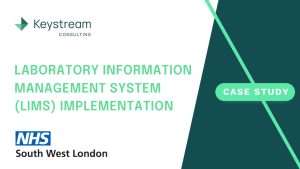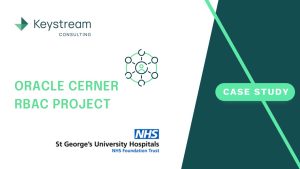22.08.2023
The Value of Experience Centres in EPR Deployments
Experience centres help raise awareness and contribute significantly to successful implementation of Electronic Patient Record (EPR) systems in the NHS. Integrating these centers throughout the lifecycle of an EPR implementation delivers measurable benefits.
Accelerating User Adoption
Establishing experience centres well in advance of go-live is an excellent strategic move. These centres provide a safe and controlled environment for clinical and administrative staff to explore the new EPR system at their own pace. Early exposure mitigates fear and uncertainty while promoting user adoption. Moreover, these centres enable users to offer invaluable feedback that could influence future system enhancements and requests for change.
Impacting Training and Practice
Serving as training hub, experience centres provide a realistic platform for clinicians and administrators to navigate and understand the EPR system’s features and functionalities. Regular hands-on experience shrinks the learning curve, enhances competence, and paves the way for a smoother transition to the new system. Furthermore, by providing targeted training for departments with high footfall and potential bottlenecks, staff can familiarise themselves with new workflows well in advance of the system going live.
Boosting Confidence and Productivity
Experience centres instil confidence in staff by offering hands-on experience within a secure setting. As staff become more comfortable with the system, productivity naturally improves. This leads to better patient outcomes and overall user experiences.
Nurturing Super Users and Champions
These centres also provide an optimal environment for super users and champions to hone their skills. Regular exposure and practice make them proficient and confident, empowering them to provide better support to their peers during the transition.
Fostering Collaboration
Experience centres also serve as an excellent venue for team meetings. They encourage interaction and discussion among different teams across the organisation, fostering a collaborative spirit and a shared sense of ownership towards the new system.
Conclusion
Incorporating experience centres in EPR implementations is a forward-thinking approach that accelerates user adoption, enhances training, and increases user confidence. By replicating real-world scenarios and enabling staff to familiarise themselves with the new EPR system, experience centres contribute to a more successful EPR implementation. Ultimately, the early establishment of these centres will help to significantly improve patient care and outcomes in the NHS, something that should be at the very core of digital transformation within large scale clinical system implementations.









